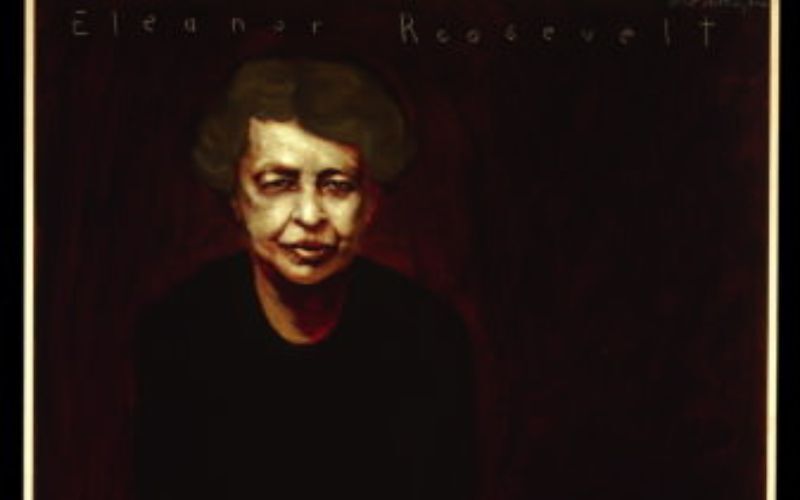Humanitarian, Social Reformer (1884 - 1962)
No one can make you feel inferior without your consent.
Additional Quotes by Eleanor Roosevelt
A little simplification would be the first step toward rational living, I think.
A woman is like a tea bag - you can't tell how strong she is until you put her in hot water.
Actors are one family over the entire world.
Ambition is pitiless. Any merit that it cannot use it finds despicable.
Anyone who knows history, particularly the history of Europe, will, I think, recognize that the domination of education or of government by any one particular religious faith is never a happy arrangement for the people.
Anyone who thinks must think of the next war as they would of suicide.
As for accomplishments, I just did what I had to do as things came along.
Autobiographies are only useful as the lives you read about and analyze may suggest to you something that you may find useful in your own journey through life.
Campaign behavior for wives: Always be on time. Do as little talking as humanly possible. Lean back in the parade car so everybody can see the president.
Do what you feel in your heart to be right- for you'll be criticized anyway. You'll be damned if you do, and damned if you don't.
Freedom makes a huge requirement of every human being. With freedom comes responsibility. For the person who is unwilling to grow up, the person who does not want to carry is own weight, this is a frightening prospect.
Friendship with ones self is all important, because without it one cannot be friends with anyone else in the world.
Great minds discuss ideas; average minds discuss events; small minds discuss people.
Happiness is not a goal; it is a by-product.
Hate and force cannot be in just a part of the world without having an effect on the rest of it.
Have convictions. Be friendly. Stick to your beliefs as they stick to theirs. Work as hard as they do.
I believe that anyone can conquer fear by doing the things he fears to do, provided he keeps doing them until he gets a record of successful experience behind him.
I cannot believe that war is the best solution. No one won the last war, and no one will win the next war.
I have spent many years of my life in opposition, and I rather like the role.
I once had a rose named after me and I was very flattered. But I was not pleased to read the description in the catalogue: no good in a bed, but fine up against a wall.
Biography
Eleanor Roosevelt was born in New York City, the daughter of a society beauty and an adored, but detached, father, and the niece of the former president, Theodore Roosevelt. As a young woman she seemed to prefer service as a volunteer in a Settlement House to the usual diversions of the socially prominent.
Her marriage to a distant cousin, Franklin Roosevelt, in 1905 brought her a large family to raise and, in 1921, a disabled husband to care for. With her encouragement, her husband returned to politics, becoming, first, Governor of New York and, in 1933 when the country was paralyzed by economic depression, President.
Although her husband's position provided her with a platform not available to most reformers, Eleanor Roosevelt's use of her opportunities to promote better housing, more humane working conditions and racial justice was distinctly her own. She wrote a daily newspaper column, spoke on the radio and traveled the country to observe and report about the plight of the forgotten poor. During World War II she made many trips overseas on behalf of her country and, at war's end and after the death of her husband, she was a delegate to the United Nations and, in 1946, became chairman of the Commission on Human Rights.
Eleanor Roosevelt's efforts to help the powerless often invited scorn and cruel mockery from those who did not share her vision of social justice. She wrote in her newspaper column, “My Day,” in 1937: “Without equality there can be no democracy.” When equality's enemies ridiculed her activism, she said, ”Do what you feel in your heart to be right—for you'll be criticized anyway.”


